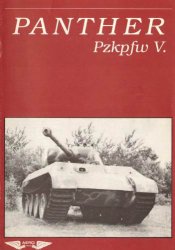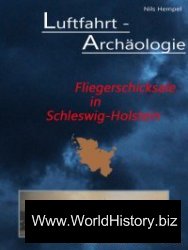The title of this essay is perhaps deceiving since on the surface it assumes (1) the existence of some monolithic category of poetry that was understood as ‘‘epic’’ throughout the Greek world and (2) genres of verbal art other than epic that were equally well defined throughout this entire period. In truth, however, neither of these statements brings us close to the actualities of ancient Greece. Indeed, Richard Martin has demonstrated in Chapter 1 of this volume that the definition of ‘‘epic’’ was ever-changing in the Greek world, encompassing early on the entire body of traditional hexameter poetry that was recited orally and then gradually narrowing its limits to Homeric and heroic sagas that achieved a greater sense of fixity as writing eventually made its full influence known. (Cf. Chapter 41, by Jenkyns. See also Ford 1997 on the various aspects of defining ‘‘epic,’’ especially in terms of an archaic performance context.)
Non-epic genres also had a large range of flexibility throughout the history of Greek literature, and here it is necessary to distinguish between genres as understood by their practitioners and genres as delimited by outside theorizers. As Depew and Obbink have noted, metadiscourse among the ancients concerning genre distinctions often took place at some distance from the actual genres themselves and sometimes even included falsification or fictionalizing of the involved “performative matrix’’ (2000a: 3). Additionally, much ancient theorizing about genres ‘‘arose quite apart from conceptualizations of genre that were production-and performance-based’’ (p. 3). The resulting normative and static categories that developed were therefore often formalistic creations - sometimes produced centuries after the artistic works themselves - useful for little more than drawing up literary canons or grouping together works sharing a small set of characteristics that could be analyzed in detail.
On the other hand, ancient Greek writers and performers would have had very different views on the proper limitations upon their art forms. Several studies such as those by Havelock (1963, 1982) and Thomas (1989) have made clear the degree to which oral communicative processes affected the literature and society of the archaic and early classical periods, and the composer of an elegy, tragedy, or philosophical treatise during these times necessarily had to take into account the dominant oral context into which a current work of verbal art was to be sent forth, even if its presentation was to occur in a
Written form. Such a context presented a traditional framework within which the composer fashioned his or her words in order to make them meaningful to an audience and produce any desired effects. However, since audiences and their previous experiences with the various types of verbal art were continually changing, so too were their expectations, and the result was a constant negotiation between artists and audiences concerning the proper form, content, and arena for specific types of composition (cf. Day 2000; Depew 2000). The formal structures and thematic conventions that gradually emerged were thus usually unwritten (especially in the archaic period (Rossi 1971)), occasionally even unrecognized (Bauman 1977: 27), and always subject to alteration, but the social force that they exerted in directing a composer’s efforts within a specific cultural setting, institution, or event was the closest thing to a prescriptive effect of genre that most ancient authors would have experienced. (Cf. Bauman 1977: 25-35.) Consequently, the degree to which an author and audience felt enabled or constrained by traditional expectations is the extent to which genre can be understood as an active consideration in the composition of early Greek literature, a situation that remained the norm even for those literary forms such as historiography that were conceived as written texts but nevertheless often felt the need to distinguish themselves or establish authority in terms of their oral surroundings. (Cf. Boedeker 2000.)
Unfortunately for our purposes here, however, such socially aware and performance-based genre distinctions did not always necessitate having epic itself (in whatever way it was understood at that particular time) as a standard reference point, even though many types of Greek literature did invite generic comparisons of either form or content with the epic poetry that was always omnipresent - with the result that Aristotle compared tragedy with epic in their metrical, thematic, evolutional, and formalistic aspects while Herodotus continually strove to distinguish his Histories from epic, especially in terms of plausibility but also with respect to an overall purpose in narrating the events selected for inclusion (Lateiner 1989: 99-100; Boedeker 2000: 103-5). Such analyses of genre thus bring to light only a small number of the complex interactions that Greek literature experienced in connection with epic, and we must therefore shift our focus away from actual generic qualifications and look instead at the relationships maintained between epic and other literary types in several different areas, whether on the level of compositional technique, textual allusion, or philosophical reaction.
In what follows, then, there has been an attempt to organize the material not in accordance with Greek distinctions of genre but with regard for the kinds of interaction that different works had with the ever-evolving category of epic poetry. An initial emphasis has been placed on archaic poetic works because of their large number of affinities with epic; the essay then proceeds to take into account several prose genres as well as tragedy, with discussion centering primarily on developments through the classical period but also including a brief glance at works from the Hellenistic period.




 World History
World History









